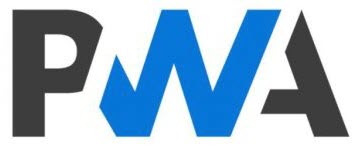Microsoft has always been a victim of not having much useful and updated apps in their Microsoft Store. Now, in order to overcome this Microsoft is using a new strategy and bringing support for Progressive Web Apps (PWA) on Microsoft Store, Windows 10 and Microsoft Edge.
With Windows 10 RS4 or Windows 10 Version 1703 or Windows 10 Build 17063 (which was earlier released to Windows Insiders), Microsoft has enabled the support for Service Workers which will enable Push Notifications service and background syncing abilities.

As said by Jeff Burtoft on #ifdef Windows’s YouTube channel, many Surface Hub apps are Progressive Web Apps and it is comparatively easier to be developed and they use lesser data than the Websites and are faster at the same time.
What is a Progressive Web App
Microsoft states that
Progressive Web Apps are just great web sites that can behave like native apps—or, perhaps, Progressive Web Apps are just great apps, powered by Web technologies and delivered with Web infrastructure.
To be precise, PWAs are nothing but web apps but they are much more enhanced with the modern web technologies like Service Workers, Fetch Networking, Cache API, Push Notifications, Web App Manifest which delivers a more app-like experience.
Roadmap regarding Progressive Web Apps for Windows 10 and Microsoft Edge
Microsoft claims that they are fully committed to Progressive Web Apps and are working tirelessly to make them first-class app citizens in Microsoft’s Ecosystem. Here, EdgeHTML version 17 engine plays a major role in powering this experience. So, the minimum requirements for powering progressive web apps on Windows 10 is the EdgeHTML Engine 17.
Just for kicks, here is @davatron5000's @godaytrip as a #PWA on a preview build of Windows 10! 🚀(inspired by: https://t.co/Flm63mmu6K) pic.twitter.com/t2Kr5MlTOX
— 🍊 KIRUPA (@kirupa) February 1, 2018
Microsoft also mentioned that
The first and most obvious distinction here is that we believe PWAs should be discoverable everywhere apps are discoverable – this means they should appear in the Microsoft Store alongside native apps. In the next release of Windows 10, we intend to begin listing PWAs in the Microsoft Store. Progressive Web Apps installed via the Microsoft Store will be packaged as an appx in Windows 10 – running in their own sandboxed container, without the visual or resource overhead of the browser. This has a number of benefits to users: PWAs installed via the store will appear in “app” contexts like Start and Cortana search results, and have access to the full suite of WinRT APIs available to UWP apps. They can differentiate their experience on Windows 10 with enhancements like access to local calendar and contacts data (with permission) and more.
If you are interested in building PWAs for Windows 10, head to PWABuilder.com to learn more. And for an in-depth discussion, following this link to the official Microsoft announcement.
Years late, Microsoft finally, sort of, catches up to the rest of the world in this area (only) so this is good news…I guess.
years late compared to who or what? googles is at the same place regarding embracing pwa’s and apple has dropped the ball on it.